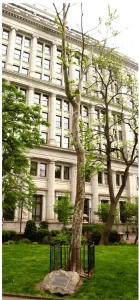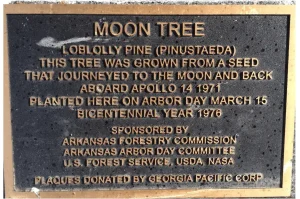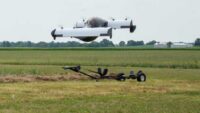The History of Moon Trees: Nature’s Lunar Legacy
Across the cosmic sea of the universe where the Earth’s moon hovers in the backdrop like a sentinel there is an interesting link between the binary and the tree. Take a fantastic voyage through the history and stories of the moon trees of the earth all organized along with science, space and survival of trees.
What are Moon Trees?
Moon trees finally bear the simple, straightforward name that has been given to them due to their somewhat extraordinary relationship with the moon. But how this connection evolved? To the starting point of this story, one has to go to the outer space where seeds of several tree species make their voyage.
The Seeds of Adventure

Buzz Aldrin, Glenn, Cernan and Harrison Schmitt flew about 500 papaya seeds aboard Apollo 14 space craft in 1971. These seeds were loblolly pine, sycamore, sweetgum, redwood, Douglas fir etc. The astronauts remain con fined safely inside the command module kitty haw during the mission which took nearly 240 , 000miles to the moon and back.
Apollo 14’s Lunar Garden
While Shepard and Mitchell travelled over the moon in the LM, the seeds went round the moon in Low Earth Orbit and were exposed to space vacuum and cosmic radiation. Specifically, this lunar garden experiment planned to assess lunar environment impact on biological signifiers in an effort to prepare for future lunar/inter planetary missions and research the possibility of life on other planets/ celestial bodies.
From Moon to Earth
By some great kind of Providence, most of the seeds germinated into good and healthy seedlings regardless of all the odds they had to overcome in space. Of these seedlings, there were a few which were referred to as moon trees due to interesting story of survival.
Building the Organic Network Around the World
After they arrived back to earth they have been spread across the United States in parks, schools, and arboretums. They come as humanity’s living billboards for space expeditions as well as campaigns towards nature conservation.
Uniting Nations in Greenery
Moon Trees are distributed across different parts of the world; hence it can be conceived that people from varying cultures unite by engaging with the product. As such, these trees will help humankind to have a meaning and signify that people will always be able to do a lot when they join their efforts together.
Moon Tree Mystique

Nevertheless, moon trees continue to possess mystery and people with interest in these trees are encouraged to make pilgrimages. The structuring of these archaic objects is a source of fascination to the visitors as they relate to significance of the cosmos and the narrative behind them.
Celebrating a Lunar Legacy
Thus having looked at the history of moon trees, it is time to pay respect to the idea and the spirit of the scansions. These are living tools that stand as lessons and knowing our position within the cosmos and beyond.
FAQs About Moon Trees
Q1: Where can I find moon trees?
A: Although you might not get seeds that have been to the moon, you could plant a tree for this space heritage.Normally it is advisable to choose a species that you will get in your country where you will find the spirit of exploration from. Examples can be seen in Washington Square Park in Philadelphia and the Kennedy Space Center in Florida.
Q2: How do moon trees differ from regular trees?
A: These remember moon trees which are normal trees evolved out from the seeds that have been to the moon and back. Even if they may appear similar to the trees on earth – their story is different, Thus, they areNot just ordinary trees.
Q3: Can I plant my moon tree?
A: Although you might not get seeds that have been to the moon, you could plant a tree for this space heritage.Normally it is advisable to choose a species that you will get in your country where you will find the spirit of exploration from.
Q: Can one handle moon trees, in this sense, touch or even manipulate the trees in any way?
A:No, they are regular trees; admit they are safe to embrace and touch or ah play with as you will.














